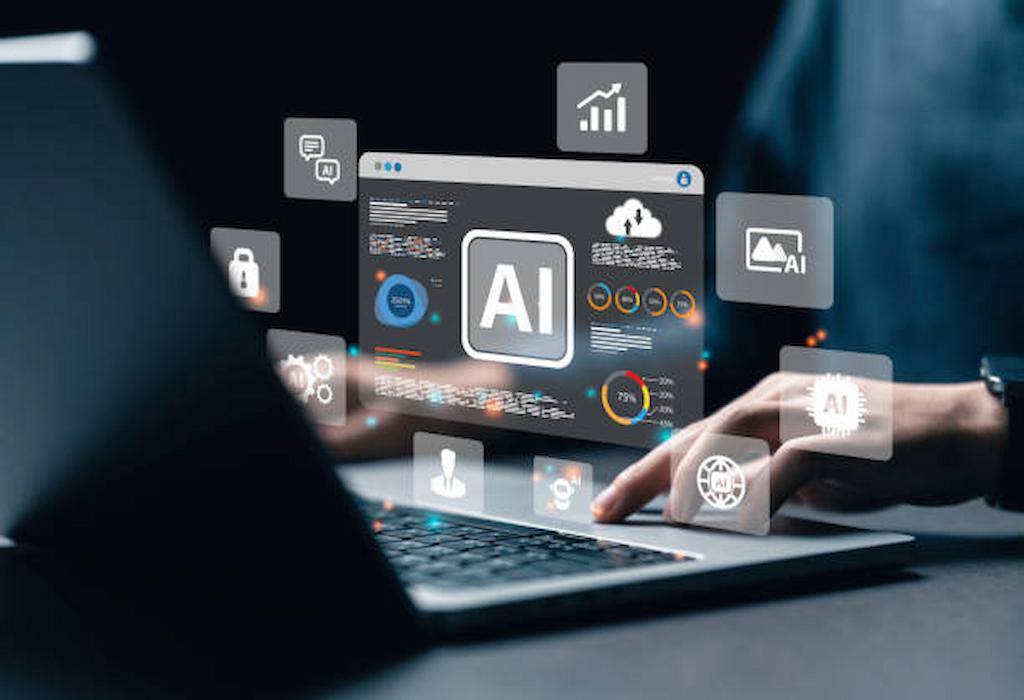In the ever-evolving landscape of digital marketing, Artificial Intelligence (AI) has emerged as a transformative force, reshaping the way businesses connect with their audiences. From personalized customer experiences to data-driven decision-making, AI is becoming integral to effective marketing strategies. In this comprehensive guide, we'll explore the impact of AI on various facets of digital marketing and how businesses can harness its power for unparalleled success.
**1. Understanding AI in Digital Marketing:
a. Definition of AI:
Artificial Intelligence refers to the simulation of human intelligence in machines, enabling them to perform tasks that typically require human intelligence, such as problem-solving, learning, and decision-making.
b. AI in Marketing:
In the realm of marketing, AI is employed to analyze vast datasets, automate processes, and derive insights that facilitate more informed and targeted strategies. It enables marketers to move beyond traditional approaches and embrace a data-driven, dynamic approach to campaign management.
**2. Personalization and Customer Experience:
a. Dynamic Content Personalization:
AI enables dynamic content personalization, where marketing messages, product recommendations, and offers are tailored to individual user preferences. This enhances the overall customer experience and boosts engagement.
b. Predictive Personalization:
AI algorithms analyze user behavior and historical data to predict future actions. This allows marketers to anticipate customer needs and deliver personalized content, recommendations, or offers even before the user explicitly expresses them.
**3. Chatbots and Conversational Marketing:
a. AI-Powered Chatbots:
Chatbots, driven by AI, are transforming customer interactions. They provide instant responses to queries, guide users through the sales funnel, and offer personalized recommendations, enhancing user engagement and satisfaction.
b. Conversational User Experience:
AI facilitates conversational marketing by enabling more natural and interactive dialogues with users. Chatbots can understand context, respond contextually, and simulate human-like conversations, providing a seamless user experience.
**4. Data Analysis and Insights:
a. Advanced Analytics:
AI algorithms can process vast amounts of data in real-time, extracting meaningful insights and identifying patterns that would be challenging for human analysts. This empowers marketers to make data-driven decisions and refine strategies based on accurate, up-to-date information.
b. Predictive Analytics:
AI's predictive capabilities extend to forecasting future trends and outcomes. Marketers can leverage predictive analytics to anticipate market changes, identify potential opportunities, and optimize their campaigns for maximum impact.
**5. Search Engine Optimization (SEO):
a. Content Optimization:
AI tools assist in optimizing content for search engines. They analyze keywords, user intent, and other factors to suggest improvements, ensuring that content aligns with SEO best practices and ranks higher in search results.
b. Algorithmic SEO:
Search engines increasingly use AI algorithms to rank content based on relevance and user experience. Marketers need to adapt their SEO strategies to align with these algorithms, emphasizing high-quality content and user satisfaction.
**6. Programmatic Advertising:
a. Automated Ad Buying:
AI powers programmatic advertising, automating the process of buying and placing ads. This ensures more precise targeting, efficient budget allocation, and real-time adjustments to maximize the effectiveness of ad campaigns.
b. Ad Personalization:
AI-driven programmatic advertising allows for highly targeted and personalized ad content. Marketers can tailor advertisements based on user behavior, demographics, and preferences, delivering more relevant and compelling messages.
**7. Social Media Marketing:
a. Social Listening:
AI tools enable social listening, and analyzing social media conversations to understand audience sentiments, trends, and feedback. Marketers can use these insights to shape their social media strategies and respond effectively to customer perceptions.
b. Chatbot Integration:
Social media platforms integrate AI-powered chatbots for customer interactions. These chatbots handle queries, provide information, and even facilitate transactions directly within the social media environment, enhancing user engagement.
**8. Email Marketing Automation:
a. Personalized Email Campaigns:
AI-driven email marketing platforms use predictive analytics to tailor email content based on user preferences, behavior, and historical interactions. This personalization improves open rates, click-through rates, and overall campaign effectiveness.
b. Automated Email Sequences:
AI automates the creation and delivery of email sequences based on user actions. Marketers can set up automated workflows that respond to specific triggers, delivering timely and relevant content to subscribers.
**9. Emerging Technologies:
a. Voice Search Optimization:
As voice search gains prominence, AI plays a crucial role in optimizing content for spoken queries. Marketers need to adapt their strategies to address the nuances of voice search and capture this growing market.
b. Augmented Reality (AR) and Virtual Reality (VR):
AI enhances the capabilities of AR and VR applications in marketing. From personalized shopping experiences to virtual product try-ons, AI-driven features enrich the immersive experiences offered by these technologies.
**10. Ethical Considerations and Transparency:
a. Ethical AI Use:
Marketers must consider ethical implications when deploying AI in their strategies. Ensuring transparency, respecting user privacy, and avoiding discriminatory practices are paramount to maintaining trust and credibility.
b. Compliance with Regulations:
As governments introduce regulations around AI and data privacy, marketers need to stay compliant. Being transparent about data usage, obtaining user consent, and adhering to regulatory frameworks are essential.
Conclusion: The AI-Powered Future of Digital Marketing
The integration of Artificial Intelligence into digital marketing is not just a trend; it's a paradigm shift that demands adaptation and innovation. Marketers who embrace AI technologies stand to gain a competitive edge by delivering more personalized, efficient, and impactful campaigns. As AI continues to evolve, its role in digital marketing will only intensify, offering new possibilities and challenges. By staying informed, agile, and ethically conscious, businesses can navigate the AI-powered future of digital marketing with confidence, driving success in an ever-dynamic landscape.


No comments yet